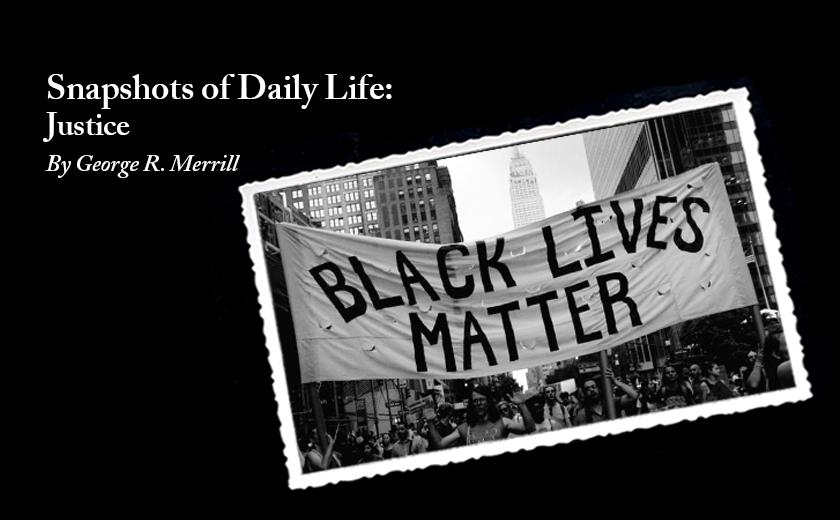Last Tuesday, Derek Chauvin was found guilty in the murder of George Floyd. The jury, a racially diverse group of seven women and five men, deliberated 10 hours before reaching their verdict: Chauvin was found guilty of second – degree murder, third– degree murder and second-degree manslaughter.
I understand this trial as an epic event in American social history. It signals a change in course that allows greater possibilities for a vibrant America; vibrant because all its citizens can have a place at the table and when they speak, they will be heard.
For over 300 years the African American community has endured relentless abuse and exploitation by a white establishment –– a white community that enjoyed a free hand by assuming an unchallenged assumption of power and privilege which was never constitutionally theirs.
Over the years, Blacks were convinced that their grievances would never even be considered much less justly addressed by the legal system.
America’s law enforcement establishment has rarely been held accountable for the conduct in its behavior toward minority groups and especially African-Americans.
Two cancers that have festered in the American soul for generations, I believe, found redress by the decision on Tuesday in the George Floyd trial.
The law enforcement system and the officers who execute its responsibilities have been delivered a mandate. They can now expect to be held legally accountable for how they perform their duties. They will be required to act in a disciplined manner and to abide by specific conventions of policing protocol. They will abide by codes of conduct.
I was particularly aware of how this trial came on the heels of the previous administration. One of its characteristics of this administration was the unconscionable ways in which it flaunted conventions of government and its codes of conduct. Social and federal protocols were flagrantly trivialized with no apparent demands for accountability coming from the congress. Federal agencies were casually manipulated, loyal government servants were abused and humiliated, while the White House itself, our national symbol, was co opted by the president as a public relations stunt for his own personal interests. Playing by the rules was trivialized. The importance of accountability in public service had been treated dismissively.
The verdict in the trial I saw, in one sense, as symbolic: it begins a process of not only vindicating the abuses suffered by African-Americans, but in an ironic way, the verdict also served to restore to white America the soul it had lost in the practices of administering justice.
Imagine for a moment the Black population now in our midst. It consists of roughly 49 million people. Here are American citizens who have been forced to hide their lamps under a bushel, so that the unique light they have ready to share in the American experience was never seen and valued. In order for this to happen Blacks had to feel some confidence in the law’s protection, and be reassured that they would be playing on a level field.
The Chauvin verdict was a sign that the burden of doubt that has plagued Blacks, the doubt they carried since they were brought here as chattel only to serve as slaves, has being seriously challenged. The African American is an American and belongs here. Blacks, like the white immigrants who once came here, this is their home. African Americans want to build a life here.
The skills and resources existing in this population bring to our collective lives, a deeper understand of our humanity and its suffering. And looking to the future, equal justice will make America great for all of us, not great again, but great for the first time.
Ironically, the statement the verdict makes creates the possibility that has never have been the case before; that African-Americans are under the law, and indeed full participants in the American dream and under the law will be treated in ways consistent with any citizens rights.
Columnist George Merrill is an Episcopal Church priest and pastoral psychotherapist. A writer and photographer, he’s authored two books on spirituality: Reflections: Psychological and Spiritual Images of the Heart and The Bay of the Mother of God: A Yankee Discovers the Chesapeake Bay. He is a native New Yorker, previously directing counseling services in Hartford, Connecticut, and in Baltimore. George’s essays, some award winning, have appeared in regional magazines and are broadcast twice monthly on Delmarva Public Radio.



Carol Voyles says
Beautiful thoughts, beautifully written and long overdue. Thank you, George.
Willard Engelskirchen says
YES
Howard Freedlander says
Candidly poignant.
Cassie Guy says
Great job, well said!
Paulette Florio says
Thank you George Merrill. I share your sentiments. May we become as a nation not divided by race, color or creed but united and inclusive with respect and consistent citizen rights for all.